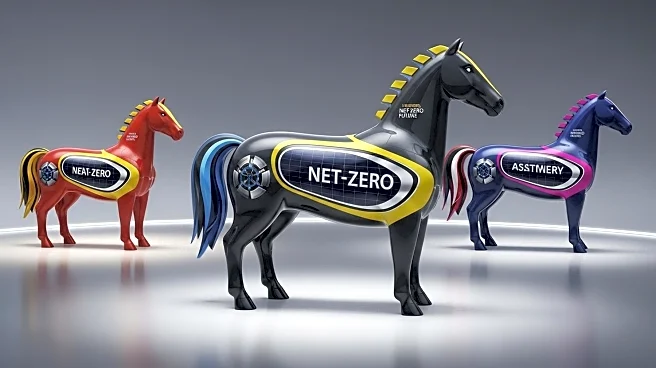What is the story about?
What's Happening?
Horse Powertrain, a joint venture between Geely and Renault, is advancing multiple strategies to achieve global net-zero emissions. The company, which also includes Aramco as a shareholder, offers a range of powertrain solutions, including hybrid engines and flex-fuel compatible systems. Horse Powertrain's portfolio is designed to meet the specific needs of different markets, supporting a tailored transition to net-zero goals. The company has introduced next-generation range extender powertrains, providing up to 800 kilometers of total range by combining electric driving with a petrol engine generator. This approach allows for reduced fuel consumption and emissions while maintaining the benefits of electric driving.
Why It's Important?
Horse Powertrain's diverse approach to achieving net-zero emissions highlights the complexity of transitioning to sustainable transportation. By offering solutions that cater to various market needs, the company is addressing infrastructure and economic constraints that hinder the adoption of electric vehicles. The range extender technology provides a practical solution for regions with limited charging infrastructure, potentially accelerating the shift towards cleaner transportation. Horse Powertrain's innovations also support the broader industry trend of exploring alternative fuels and hybrid systems, contributing to global efforts to reduce carbon emissions.
Beyond the Headlines
The development of flex-fuel engines and range extenders by Horse Powertrain reflects a broader industry shift towards flexible and adaptable powertrain solutions. This approach challenges the notion of a one-size-fits-all solution for sustainable transportation, emphasizing the need for diverse strategies to meet varying consumer and regional demands. The company's focus on integrating components into complete powertrain systems underscores the importance of holistic solutions in achieving net-zero goals. As the industry continues to evolve, Horse Powertrain's innovations may influence future regulatory frameworks and consumer preferences.

















